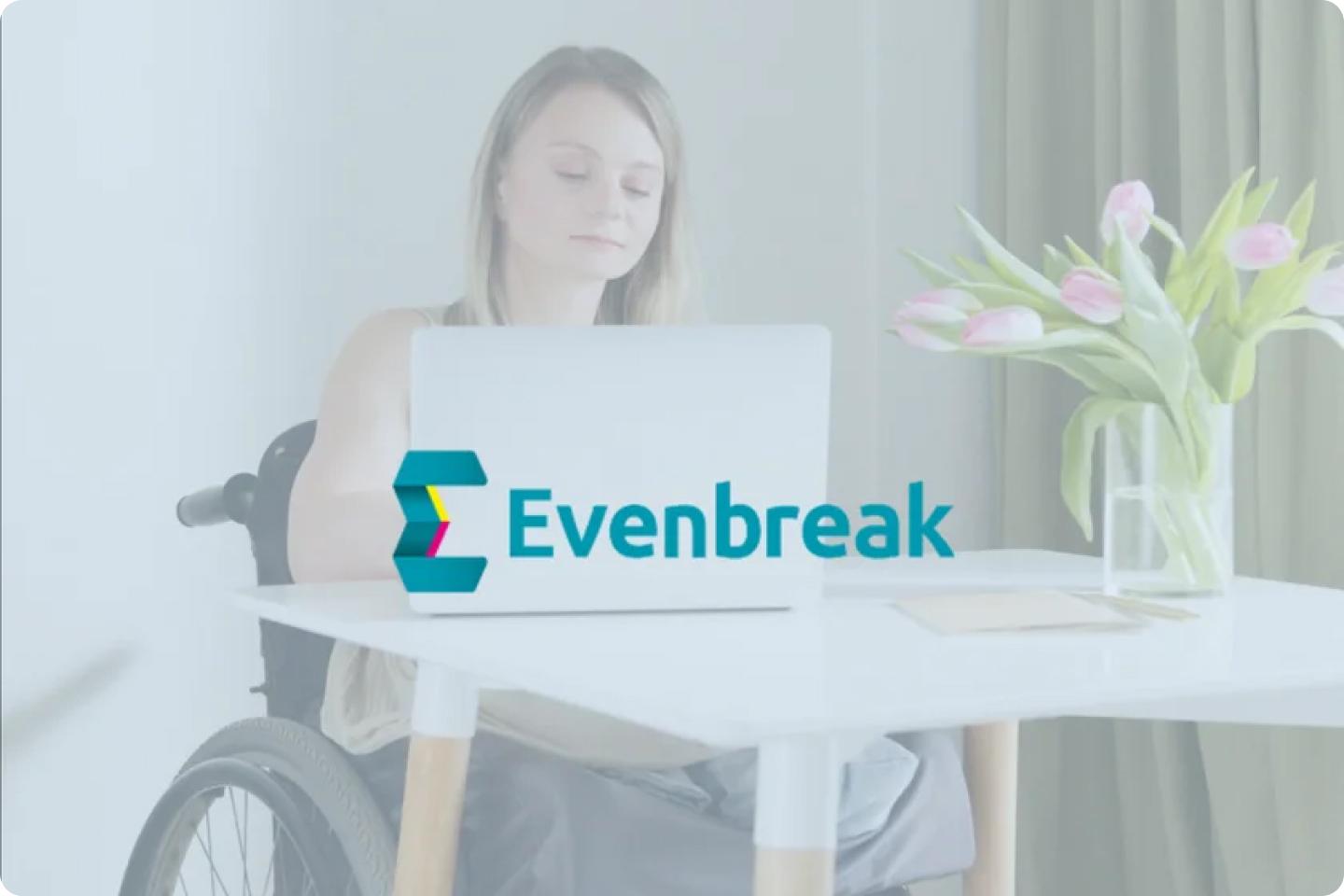All Articles
3 min read
Top 10 Tips For Finding Work If You Are Disabled
Written by
Jane Hutton, CEO/Founder of Evenbreak
Published on
July 4, 2024

Finding sustainable, paid employment can be particularly challenging for disabled individuals, often requiring a more strategic approach than for their non-disabled peers. Here are the top tips from Evenbreak, an award-winning specialist job board run by disabled people for disabled people, to help you succeed in your job search.
1. Identify Your Strengths
Understand What You Offer
To present yourself effectively to potential employers, you must first understand your strengths. Just as you would highlight the features and benefits of a product when selling it, you need to pinpoint your skills, strengths, experience, knowledge, qualities, and personality traits. Focus on what you can do well and enjoy doing. This self-awareness will form the foundation of your job search.
2. Explore How to Use Your Strengths
Match Your Skills to Potential Jobs
Consider how your strengths can be applied in various roles, especially with the right accommodations. Identify the types of jobs and sectors where your skill set and experience can be valuable. Think broadly to expand your job search and increase your opportunities.
3. Build Your Confidence
Recognise Your Value
Confidence is crucial in your job search. Believe in your abilities and recognise that you are a valuable candidate. Enhancing your confidence can help you present yourself better to potential employers, who are more likely to believe in you if you believe in yourself.
4. Search in the Right Places
Leverage Multiple Job Platforms
Employers post job opportunities across various platforms, including job boards, magazines, recruitment agencies, job fairs, and even the radio. Ensure you explore these options, especially those dedicated to disability employment, such as Evenbreak. Don’t limit your search to just one or two sources.
5. Be Proactive
Reach Out Directly to Employers
In addition to responding to job advertisements, consider proactively approaching organisations you’re interested in. Send a speculative CV and follow up with a quick email or call every month to check if any suitable positions have opened up. This approach can sometimes lead to opportunities that aren’t publicly advertised.
6. Utilise Social Media
Create a Strong Online Presence
A well-crafted LinkedIn profile can be a powerful tool in your job search. Highlight your skills and experience to attract recruiters who may be looking for candidates without advertising their jobs. Being visible online increases your chances of being discovered for relevant opportunities.
7. Emphasise Your Strengths in Applications
Focus on What You Can Do
When writing your CV or filling out application forms, emphasise the strengths that make you an ideal candidate for the job. Tailor your applications to highlight your suitability for each specific role. Mention your impairment only if it’s relevant and if the employer is actively seeking disabled candidates or offers guaranteed interviews to disabled applicants.
8. Prepare for Interviews
Provide Concrete Examples
Bring examples to your interviews that demonstrate why you are the best fit for the job. Discuss similar roles you’ve held, even in a voluntary capacity, and make sure you convey that you possess all the skills and qualities the employer is looking for. If your impairment isn’t visible, decide whether to mention it based on the role and your background.
9. Discussing Disability
Highlight the Positives
Whether or not to disclose your disability will depend on the role, your impairment, and the employer’s attitude. Being disabled often means you’ve developed valuable skills like problem-solving, creative thinking, and persistence. If your assistive technology enhances your performance, highlight this as an advantage. If you need adjustments, request them positively by explaining how they will help you perform better.
10. Reassure Employers About Adjustments
Explain Access to Work
Inform potential employers about the Access to Work scheme, which can cover the costs of workplace adjustments. This can alleviate any concerns they might have about the financial implications of hiring you and shows that you are proactive in managing your needs.
Bonus Tip: Seek Feedback
Learn and Improve
Whenever possible, ask for feedback if you don’t get the job. Although not all employers provide feedback, when they do, it can offer valuable insights on how to improve for future applications and interviews.
Conclusion: Persist and Succeed
Finding a job as a disabled person requires persistence and patience, but the effort is worth it when you secure your ideal position. For more support and resources, visit the Career Hive by Evenbreak, which offers relevant, accessible support tailored to disabled candidates. Good luck with your job search! Your dream job is within reach with the right approach and determination.
Evenbreak is an award-winning not-for-profit specialist job board run by disabled people for disabled people
Related Articles
Get That Dream Job: Asking for What you Want
How to Apply for PIP and Maximise the Benefits in the UK
Are You a Premium Candidate?
Positive Talk About Disability in the Workplace
